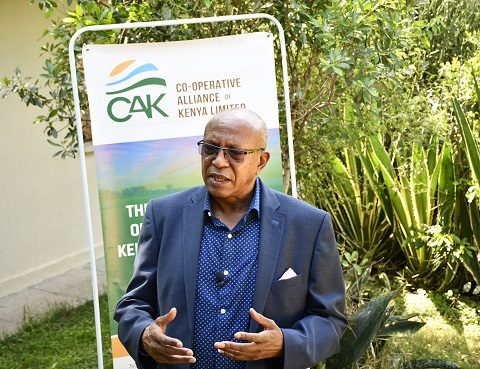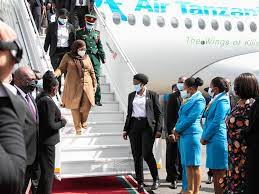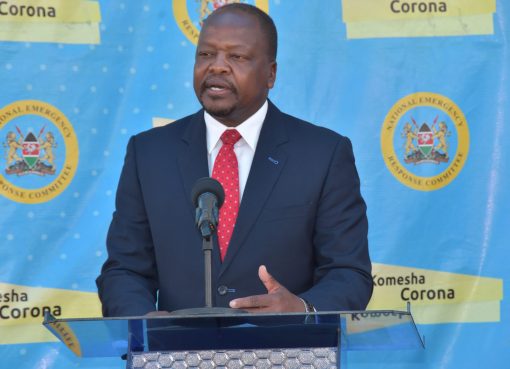
The deliberating effects of Polio have confined millions into untold misery across the globe and cut short dreams of people who would perhaps have transformed the world.
Many of such victims have become an eyesore in the streets and eke a living from trinkets and alms that kind passersby drop as they walk by.
Indeed, it would be hard to walk through the ends of any urban centre and miss out on someone who has suffered from the disease. Polio is a highly infectious viral disease, which mainly affects young children.
The virus is transmitted by person-to- person through fecal-oral route. The disease spreads fast and causes paralysis leading to permanent disabilities and even death. The initial symptoms include fever, fatigue, headache, vomiting and stiffness of the neck and pain in the limbs.
According to WHO, cases of persons dying to wild poliovirus have decreased by over 99 per cent since 1988, from an estimated 350, 000 cases then, to 22 reported cases in 2017. And as a result of the global effort to eradicate the disease, more than 16 million people have been saved from paralysis.
There is no cure for polio but the disease can only be prevented through vaccines, given multiple times. On one of our daily beats in Machakos town we came across, Nicholas Mutisya busy at his kiosk where he works with his brother, James Muthama.
The two are victims of infantile paralysis that struck them at birth leaving their limbs severely weakened and almost immobile.
And this was the genesis of their struggle with this disease that has adamantly stuck around the siblings for years like a leech.
“I found myself in this condition,” begins Mutisya when we visited them at their kiosk where they vend confectioneries, cigarettes and airtime.
“My parents told us they used to take us to the health center for the normal vaccine schedule where we received the poliomyelitis vaccine. To date I don’t know whether this explanation is true,” he ponders. The duo said they later attended

.
The distance to the school those days was a daily torturous trek until they eventually sat for their Kenya Certificate of Secondary Education in 2002.
Later, they joined Iyuni High School in Machakos before eventually enrolling at a college within Machakos town where they studied advanced computer studies. But upon graduation, the two realized a certificate was not an automatic vehicle into securing formal employment.
With the added disadvantage of being confined to wheelchairs, Muthama and Mutisya decided to go for self-employment.
“Lack of employment was the main reason I started my own business as an airtime vendor with only Sh. 500. It is now thirteen years since we decided to take this venture. Since then we have never looked back,” says Muthama adding the business has grown from scratch to the current kiosk.
Besides being in a position to fend for themselves, the duo has managed to carve a household name among their clients who sometimes pass by just to say hi to them. This interaction has also given them the audacity to look forward to better days in spite of their current situation.
Their only request is for relevant stakeholders to offer them support that may boost their current living standards and in the long run help them fend for their families.
Be as it may, the two have a word of advice to those living with physical challenges; that disability is not inability and none should live of the begging bowl. They stressed that all, whether able bodied or otherwise should utilize their God-given talent and make the world a better place to live.
“As long as you have both your hands nothing is difficult, just believe in yourself and follow your dreams and ambitions,” emphasizes Muthama whose ambition is to represent persons with physical challenges in the August House someday.
A few meters away we meet Redempta Mbula a single mother of two who operates a digital weighing machine.
Having been disabled since birth, the 36-year-old mother says she tried begging on the streets but found she could not put up with the embarrassment from the public.
Mbula’s story took a turn in 2013 when she moved from her ancestral home in Makueni to Machakos after the death of her parents. She explains how at one time life became so hard when her sister told her to turn into prostitution to make both ends meet. She said she defied her and vowed to work with her own hands and if need be die rather than throw her integrity to the garbage heap.
“I could not destroy my reputation just because I was disabled and I immediately decided to move out of my sister’s house after undergoing much suffering. I struggled up and down for some time and afterwards managed to buy my own weighing machine after getting the idea from one of my friends,” explains Mbula who managed to clear primary school by sheer miracle.
But despite the challenges dogging her and having nobody else to look up to, she still works undeterred hoping against all odds that her business will grow by leaps and bounds. She is full of optimism and welcomes any support that would help expand her business and enable her to support her family.
“Being born disabled does not mean you cannot work. There is no situation in life which one cannot handle. I also believe there is a reason why God allows things to happen in a person’s life,” says Mbula.
According to The Global Polio Eradication Initiative, a public-private partnership led by national governments with five partners -WHO, Rotary International, the US Centers for Disease Control and Prevention, UNICEF and the Bill and Melinda Gates Foundation, 15 countries remain at risk of recording new Polio cases.
They include Cameroon, Central African Republic, Chad, Guinea, Ethiopia, Guinea, Iraq, Liberia, Madagascar, Myanmar, Sierra Leone, South Sudan, Ukraine and Lao People’s Democratic Republic.
By Stephen Kimanthi/Evelyn Mwende




